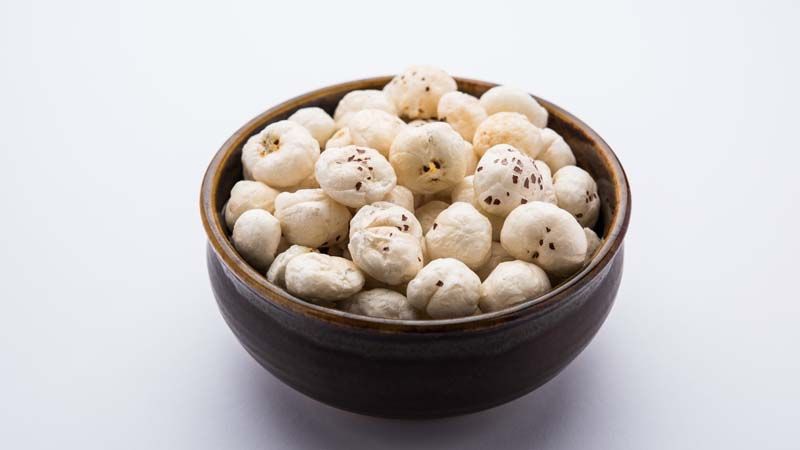Dietary Tips For Menopause
- 29 days ago
Menopause is a natural biological phase that marks the end of a woman’s reproductive years, typically occurring between the ages of 45 and 55. During this transitional phase, hormonal changes can lead to various physical and emotional symptoms, including hot flashes, mood swings, weight gain, and sleep disturbances. While it can be a challenging time, adopting a balanced and nutritious diet can help alleviate some of these symptoms and support overall health.
In this blog, we’ll explore the changes that menopause brings, foods to eat, foods to avoid, and key takeaways for managing this life stage.
Understanding Menopause Changes
As women approach menopause, their bodies experience significant hormonal shifts, particularly in estrogen and progesterone levels. These changes can lead to:
- Hot Flashes and Night Sweats: Sudden feelings of heat can disrupt daily activities and sleep.
- Weight Gain: Hormonal fluctuations can lead to weight distribution changes, particularly around the abdomen.
- Mood Swings: Emotional symptoms such as irritability and anxiety can arise.
- Bone Density Loss: Reduced estrogen can lead to a decrease in bone density, increasing the risk of osteoporosis.
- Digestive Changes: Many women experience changes in digestion, including bloating and constipation.
Understanding these changes can help women make informed dietary choices to manage symptoms effectively.
Foods To Eat
Incorporating nutrient-rich foods into your diet can help ease menopause symptoms and support overall health.
1. Phytoestrogen-Rich Foods
Phytoestrogens are plant-based compounds that imitate the effects of estrogen in the body. Including these foods may help balance hormone levels.
- Soy Products: Tofu, edamame, and soy milk are excellent sources.
- Flaxseeds: Rich in lignans, they can help reduce hot flashes.
- Legumes: Beans, lentils, and chickpeas provide both fiber and phytoestrogens.
2. Fruits and Vegetables
A diet high in fruits and vegetables can help reduce inflammation and provide essential vitamins and minerals.
- Leafy Greens: Spinach, kale, and broccoli are packed with calcium and magnesium, important for bone health.
- Berries: Blueberries, strawberries, and raspberries are high in antioxidants, which can help combat oxidative stress.
- Citrus Fruits: Oranges and grapefruits are rich in vitamin C, which supports the immune system.
3. Whole Grains
Whole grains aid in stabilizing blood sugar levels and offer sustained energy.
- Oats: High in fiber and can help manage weight.
- Quinoa: A complete protein that supports muscle health.
- Brown Rice and Whole Wheat Bread: Offer fiber and important B vitamins.
4. Healthy Fats
Incorporating healthy fats into your diet is essential for hormone production and overall health.
- Avocados: Packed with healthy monounsaturated fats.
- Nuts and Seeds: Almonds, walnuts, and chia seeds provide omega-3 fatty acids and protein.
- Olive Oil: A heart-healthy fat that can reduce inflammation.
5. Dairy or Dairy Alternatives
Calcium and vitamin D are crucial for bone health, especially during menopause.
- Low-Fat Dairy Products: Yogurt, cheese, and milk are excellent sources of calcium.
- Fortified Plant-Based Alternatives: Almond or soy milk fortified with calcium and vitamin D.
6. Hydration
Staying hydrated is crucial, particularly if experiencing hot flashes. Aim for at least 8-10 glasses of water daily, and consider herbal teas that may help soothe symptoms, such as chamomile or peppermint.
Foods To Avoid
While certain foods can be beneficial, others may exacerbate menopause symptoms.
1. Caffeine: Caffeine can trigger hot flashes and disrupt sleep. Limiting coffee, tea, and chocolate may help alleviate symptoms.
2. Alcohol: Excessive alcohol consumption can cause mood swings and disrupt sleep. It's important to drink in moderation; try to limit your intake to one drink a day.
3. Spicy Foods: For some women, consuming spicy foods may lead to hot flashes. If you notice an increase in symptoms after consuming spicy dishes, consider reducing them.
4. Processed Foods: High in sugars, unhealthy fats, and sodium, processed foods can lead to weight gain and worsen mood swings. Whenever possible, choose whole, unprocessed foods.
5. High-Sugar Foods: Sugary snacks and desserts can lead to energy crashes and weight gain. Opt for healthier sweet alternatives, such as fruit or dark chocolate in moderation.
6. High-Sodium Foods: Excess sodium can lead to bloating and increased blood pressure. Read labels and try to limit processed and canned foods that often contain high levels of salt.
The Bottom Line
Menopause marks an important life transition that can present a range of physical and emotional challenges. However, adopting a healthy diet can play a pivotal role in managing symptoms and promoting overall well-being. Focus on incorporating phytoestrogen-rich foods, plenty of fruits and vegetables, whole grains, healthy fats, and adequate hydration into your daily routine. At the same time, be mindful of foods that may exacerbate symptoms, such as caffeine, alcohol, and processed foods.
Every woman's experience with menopause is unique, so it’s essential to listen to your body and consult with a healthcare professional for personalized advice. By making informed dietary choices, you can navigate menopause with greater ease and maintain a healthy lifestyle.








